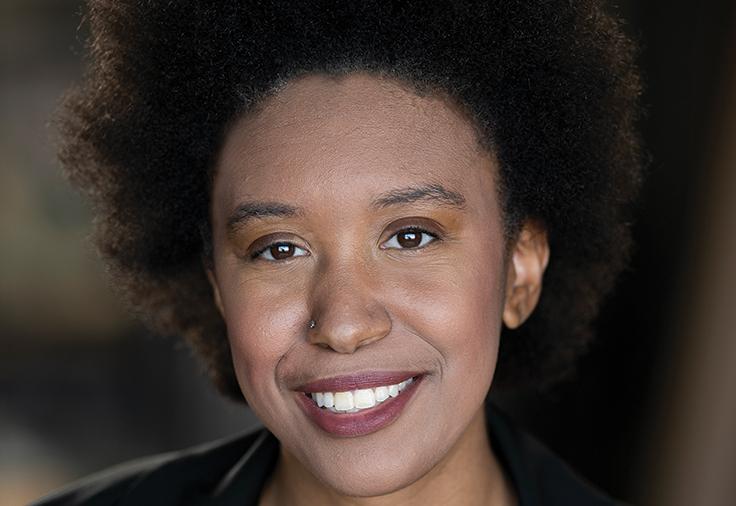
Name: Beatriz Lynch
Age: 44
Profession: Immigration lawyer
Income last year: Middle five-figures
Expected income this year: Unknown — she hasn’t gotten a paycheck since the beginning of March
Do you rent or own? Owns her home, but rents her office
What do you pay for that you can't cut? Mortgage for her house and rent for her law office
What do you pay for that you could cut if you had to? Subscriptions to The Economist and New York Times
Are you paying for anything you’re not using? Her law office
What’s your guiltiest dollar spent right now? Those subscriptions — she canceled them last week
Beatriz Lynch describes her income as “comfortable.” She’s an immigration lawyer and has had her own practice in Denver for nearly a decade. She usually makes enough to pay her bills and to have a bit to save on the side.
Most of her clients have few resources and don’t have much money. Many pay for her services through long payment plans.
Lynch grew up in Chile and came to America when she was 12 years old. Her mother is from Chile and her father is from Britain, and her whole family went through the process of getting green cards.
After going through the process herself, she wanted to help other people do the same.
“I really like what I do and I really enjoy helping people,” she said.
But right now, a lot of her clients are out of work and cannot make their payment plans. Lynch said she’s fortunate to have some money set aside, but only enough to last her about two months.
“What am I supposed to do?” she asked.
She has had to close her practice during the pandemic.
“I’ve only had two telephone consultations and people like to see their attorneys,” Lynch said. “How are they going to trust you with such an important matter like immigration?”
She’s uncertain that she will be able to reopen her office once all this is over. She does minimal advertising and most of her business is through referrals from past clients.
She’s considering applying for a small business loan. She said if she gets it, it’ll just be $3,000, but that’s enough to continue to pay for her office space and utilities for the next two months.
On top of business slowing down, she also has a lot more work at home. She has a 1-year-old daughter and a 3-year-old son with asthma. Before the social distancing measures were put in place, her son went to daycare three times a week while Lynch went to the office to see clients. She usually has a babysitter to watch her daughter during that same time but had to let them go for the foreseeable future. Lynch didn't want to risk bringing an outsider — and their germs — into the house, especially with her vulnerable son.
“I’ve now taken the role of trying to teach my son how to read, activities and so forth,” she said. “It’s 24-7 nonstop and it’s a lot. I’m doing absolutely everything with no help.”
She says remaining calm for her two children while taking care of them is also a full-time job.
“My son keeps asking ‘Mommy, are you happy?’ and it just breaks my heart,” she said. “I’m beyond stressed-out about everything and I still have to maintain some sort of happiness for them.”
Before the pandemic, she often relied on her parents to help out with childcare. But she hasn’t seen her parents in almost a month to protect them from COVID-19. They were all supposed to go on a family trip this spring, but that’s been canceled.
Lynch relies on FaceTime so her children can still see their grandparents. She said explaining to her children why they can’t visit in person is difficult.
She's also waiting for her stimulus check so she can pay for her mortgage and groceries. But she worries the check will come in at less than the maximum amount because the IRS hasn’t filed her 2019 taxes, and she only had one child in 2018.
Under the federal CARES Act, she’ll be able to apply for unemployment since it now includes self-employed people and independent contractors. But Lynch has also heard of many stories about not being able to get benefits because of the influx of people out of work.
Last week, about 104,000 people filed for unemployment in Colorado. That one-week number is greater than any single year from 2011 to 2019.
“I think applying for unemployment benefits is truly mission impossible,” Lynch said.
To keep her head on straight and have some alone time, she runs on the treadmill in her basement.
“That’s the way that I keep sane but it’s hard,” Lynch said.
She also has two large German shepherd dogs. Lynch said taking care of them makes her nights easier — they make her calmer.
Lynch said she will always try to help people who need help with immigration services. She just hopes it will be from her office. Every day, it’s looking a little less likely.
“Before the pandemic, I knew work would come one way or another,” she said. “Now I don’t see how that’s going to happen and it scares me.”
Still, she’s trying to keep positive.
“I am super optimistic,” she said. “I think in life, you have to be.”









